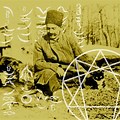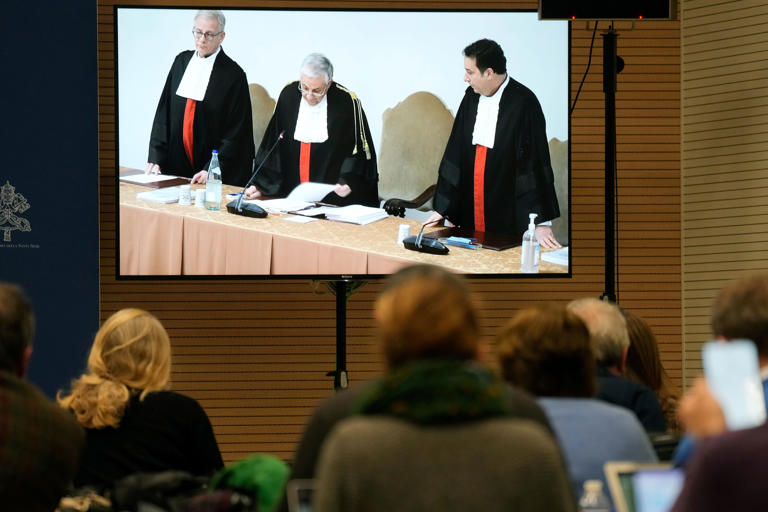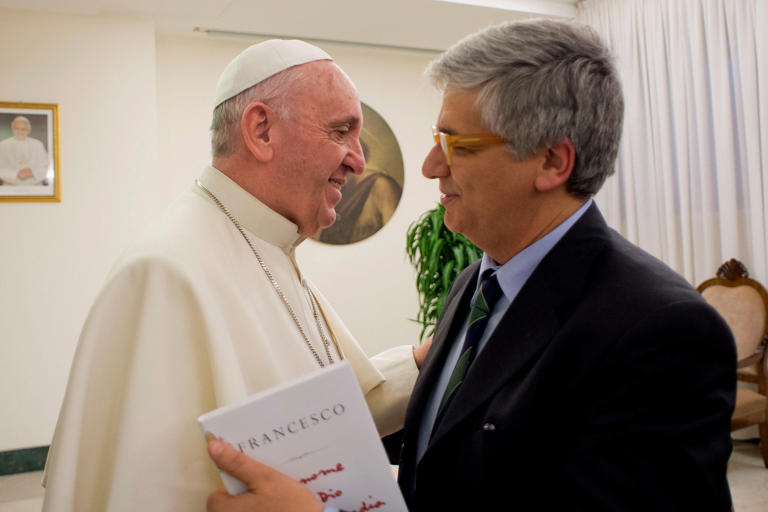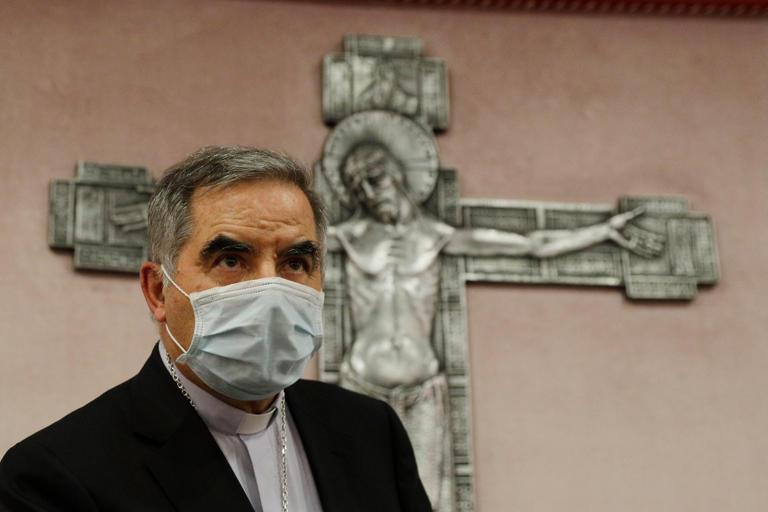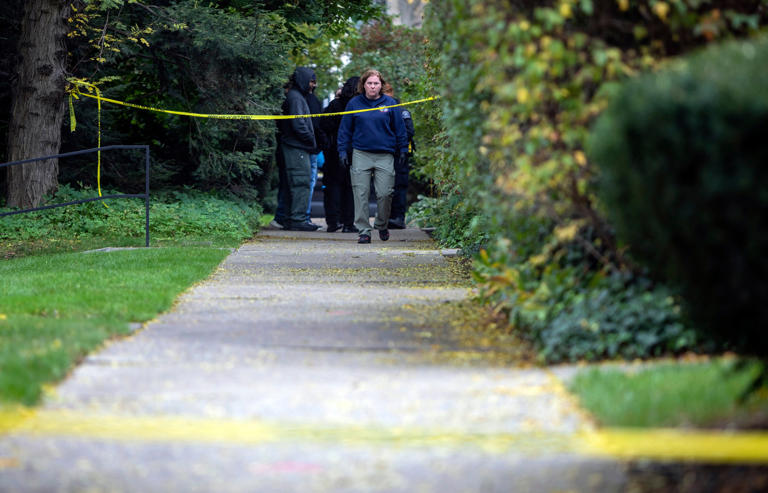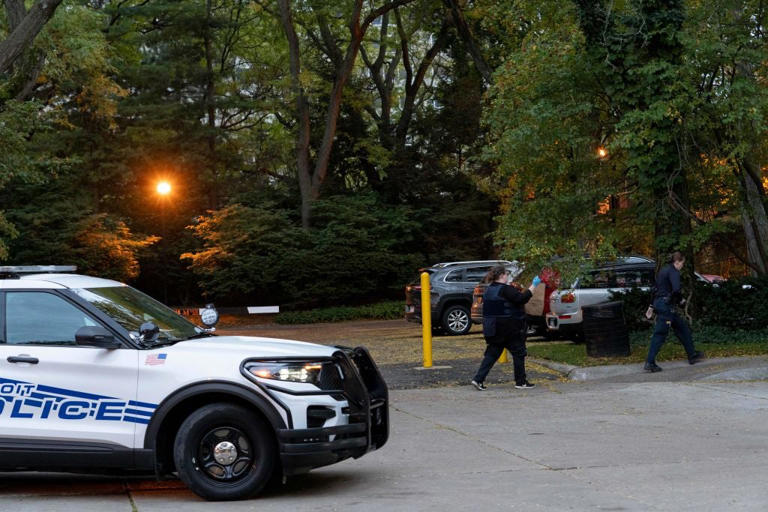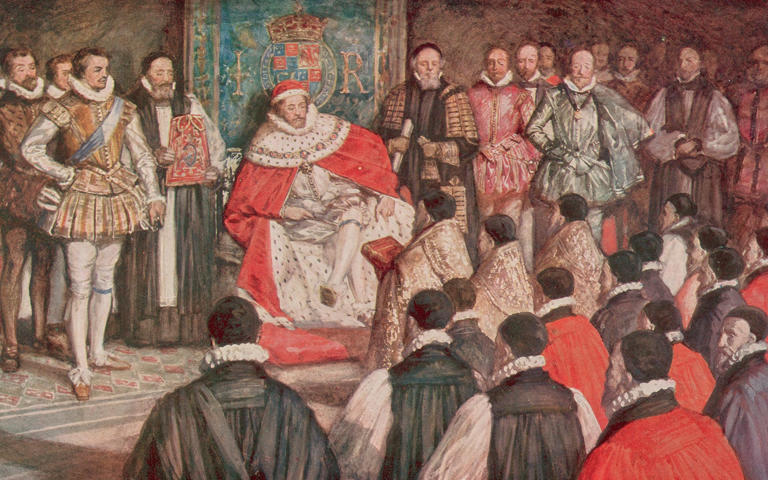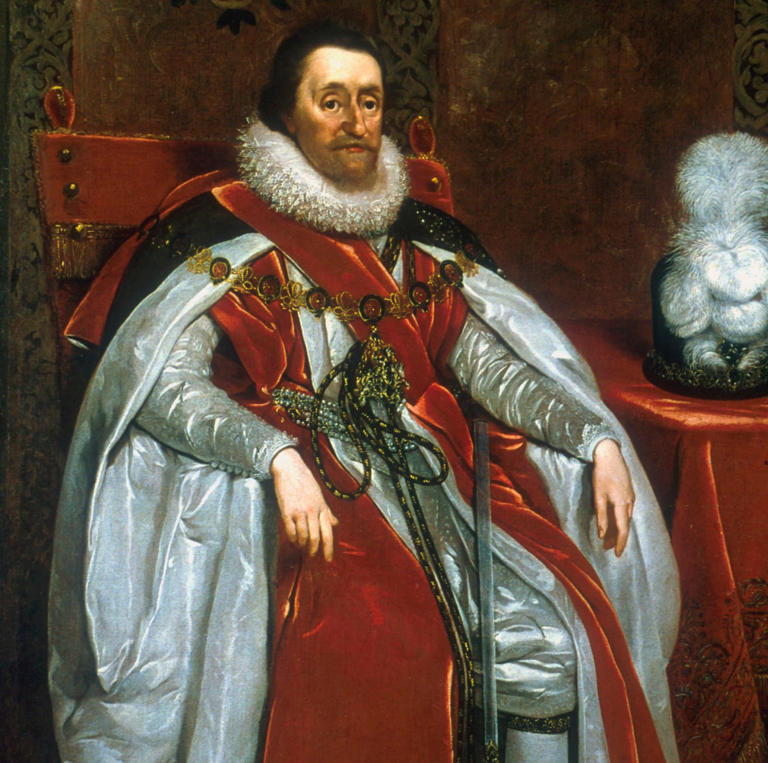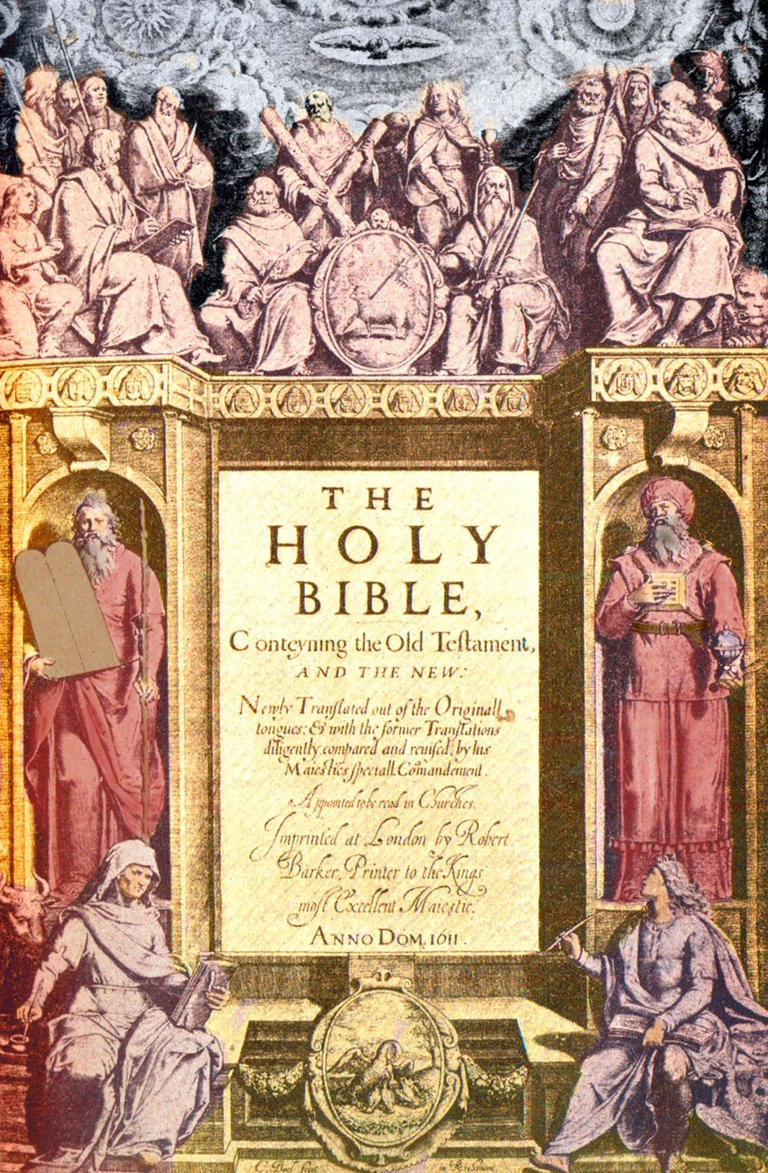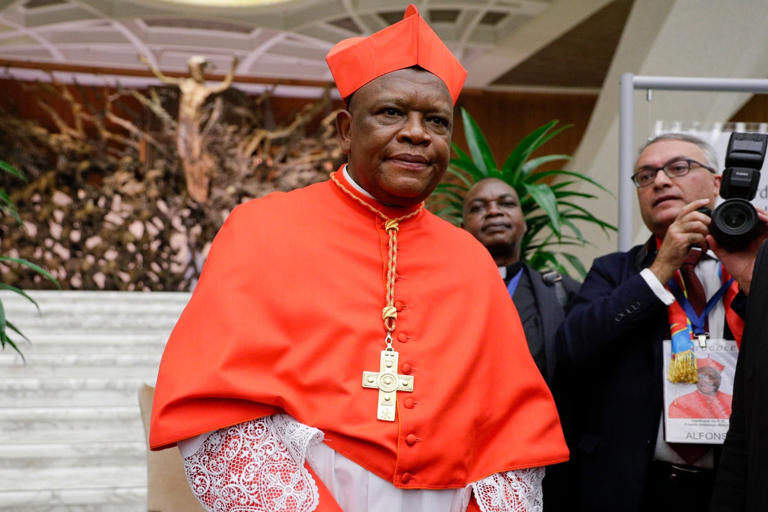Lawyers hit out at Vatican’s ‘trial of the century’ after Pope secretly changes law four times
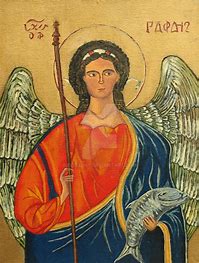









Lawyers hit out at Vatican’s ‘trial of the century’ after Pope secretly changes law four times
Prominent lawyers have hit out at the Vatican’s recently concluded “trial of the century,” highlighting violations of basic defense rights and rule of law norms that they warn could have consequences for the Holy See going forward.
The opinions cite Pope Francis’ role in the trial, since he secretly changed Vatican law four times during the investigation to benefit prosecutors. And they call into question the independence and impartiality of the tribunal since its judges swear obedience to Francis, who can hire and fire them at will.
The critiques underscore the growing problems on the international stage for the peculiar microstate that the Holy See calls home: an absolute monarchy where Francis wields supreme legislative, executive and judicial power.
The legal opinions are likely to feature in the appeals within the Vatican court system of the nine people who were convicted in December of several financial crimes linked to the Vatican’s bungled 350 million euro ($380 million) investment in a London property. And they could also be raised during the current review of the Holy See’s compliance with European norms at the Council of Europe.
During two years of hearings, defense attorneys highlighted many of the same issues now raised by outside analysts. But the tribunal led by Judge Giuseppe Pignatone repeatedly rejected their motions.
After the first verdicts were issued, the Vatican’s editorial director, Andrea Tornielli, insisted that the process had been fair, that the judges acted independently and that the trial was carried out “in full respect of the guarantees for the suspects.”
Geraldina Boni, a professor of canonical and ecclesiastic law at the University of Bologna and an adviser to the Vatican’s legal office, disagreed in an article published Monday in the peer-reviewed legal journal of the University of Milan.
Writing with church legal experts Manuel Ganarin and Alberto Tomer, Boni described the four secret executive decrees that Francis penned during the investigation as giving prosecutors “essentially, and a bit surreally, ‘carte blanche’” to pursue their case without any judge overseeing them.
The decrees, which were never published, gave prosecutors authorization to intercept suspects' communications and take “whatever” precautionary measures against them were necessary, including deviating from existing Vatican law. The defense only learned about their existence once the trial was underway.
Boni, who said she was asked to provide a legal opinion for the defense of Cardinal Angelo Becciu, who was convicted of embezzlement, said the decrees represented a clear violation of the right to a fair trial, which calls for “the equality of arms” between defense and prosecution.
“It’s obvious that the people under investigation in the case were placed in a situation of substantial and onerous disadvantage, given they were completely unaware of the prosecution’s new investigative powers and thus unable to reasonably foresee the effects of their actions,” she wrote in "State, Church and Confessional Pluralism."
Francis has seemingly sought to justify the measures taken to get the trial off the ground, telling tribunal staff in 2023 that they should “avoid the risk of confusing the finger for the moon,’” or allowing obstacles to stand in the way of a greater good.
But Boni argued that in criminal and procedural law, the ends cannot justify the means. Such an attitude, she warned, “could end up justifying any conduct and any use of sovereign power in the search at all costs for the guilty.”
Even though the tribunal tried to compensate for such “unacceptable abuses,” she wrote, the anomalies were so grave as to have “invalidated the entire justice of the trial, prospecting a violation of divine law to which even the pope is subject.”
Paolo Cavana, a professor of canonical and ecclesiastic law at the Vatican-affiliated LUMSA University, argued that the Holy See is beholden to European norms guaranteeing a fair trial “by an independent and impartial tribunal,” even though it technically never signed the European Convention on Human Rights.
Writing in the same journal as Boni, Cavana argued that the Holy See committed to upholding the convention’s fundamental principles when it concluded a monetary agreement with the EU in 2009 allowing the Vatican to use the euro as its official currency.
But he said it is a matter of debate whether the Vatican’s judges are truly independent “given the pervasive character of the pontiff’s powers."
It's clear that the papal decrees exercised on the judges "a strong pressure about the outcome of the trial itself,” he wrote.
Cavana, who since 2019 has also served as an adviser to the Italian premier on church and Vatican matters, warned that Italy and other states may not recognize sentences pronounced by a tribunal if the judges are not considered independent and impartial.
Rodney Dixon, a veteran British international and human rights lawyer, said as much in a legal opinion prepared at the request of defendant Raffaele Mincione. Dixon said countries should refuse to cooperate with the Vatican tribunal, and should refuse to respect its verdicts, since the trial had been “marred by substantial violations of well-established international legal obligations applicable to all criminal proceedings.”
Tribunal head Pignatone repeatedly rejected defense claims that the suspects weren’t getting a fair trial, and even went so far as to exclude the testimony of defendant Gianluigi Torzi, who was arrested and detained for 10 days without being charged as a result of the special powers given to prosecutors by the pope.
In a March 1, 2022 ordinance, Pignatone said that while the Vatican had not adhered to any international human rights conventions, its own laws incorporated their principles fully.
He noted that both Italian and Swiss courts have previously recognized the independence and impartiality of Vatican judges and recalled that in the actual exercise of their work, Vatican judges are “subject only to the law.”
What we know about the killing of Detroit synagogue leader Samatha Woll
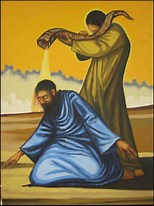









What we know about the killing of Detroit synagogue leader Samatha Woll
Just a mile from the Michigan synagogue that she had led since last year, Samantha Woll’s lifeless body was found in the early morning hours of 21 October. Outside her home in the Lafayette Park neighbourhood, Detroit police officers followed a trail of blood to the disturbing scene.
The brutal stabbing of the beloved president at Isaac Agree Downtown synagogue shocked the local community and city officials, who remembered her as a beacon of light in the community who sought to build bridges between Jews and Muslims.
Two days after the murder, Police Chief James White declared that few details about the investigation would be shared publicly to protect the probe. He said the killing was not believed to be motivated by antisemitism, and that persons of interest were being looked at.
The case then went quiet for over two weeks before police announced the arrest of a suspect on 8 November.
After the suspect was released without charge, the case appeared to go cold yet again.
Until 10 December when Detroit police announced that a new person of interest was in police custody.
Now, loved ones of Woll – who once worked as a former aide to Democratic Rep Elissa Slotkin and as a campaign staffer for Attorney General Dana Nessel – are awaiting news as to whether authorities have finally caught the killer.
Here’s everything we know about the case so far:
Who was Samantha Woll?
Woll led the Isaac Agree Downtown Synagogue since 2022.
She has been remembered by loved ones as a leader who worked to unite people through her interfaith work. Dawud Walid, president of the Council on American Islamic Relations’s Michigan chapter, called Woll’s death a “tragic loss” and praised her efforts to unite the Jewish and Muslim communities in Detroit.
“We are troubled by the apparent homicide of Samantha Woll, a beloved leader within her faith community in Metro Detroit,” Mr Walid said in a statement. “We also send our sincere condolences to her family and friends and to the Detroit Jewish community as a whole for the tragic loss.”
According to a 2017 article by The Detroit Jewish News, Woll was “instrumental in the founding of the Muslim-Jewish Forum of Detroit,” an alliance that helps build bonds between Jewish and Muslim youth.
“By extending her hand and creating space for connection between Muslims and Jews, she has exemplified the values of healing the world,” the article read.
More than 1,000 people attended Woll’s funeral, the Detroit Free Press reports. Senator Stephanie Chang and AG Nessell were among the attendees who delivered heartfelt eulogies during the service.
“Sam did more for our community, our state, our world, our lives in her short time here on Earth than most will ever accomplish in 1,000 lifetimes,” Ms Nessel said in her eulogy, according to The New York Times.
Sen Chang also said that Woll had devoted her time to listening to Muslim and Jewish members of her community following the 7 October Hamas attack on Israel. Meanwhile, Woll’s sister Monica Woll Rosen shared with mourners how the slain synagogue president “fought for everyone.”
“You sent hearts to cheer people up and let them know you’re thinking of them — because you cared,” Ms Woll Rosen said, revealing that a friend of her late sister had received flowers from her on the day of her death, according to The New York Post.
“That was you, Sam,” Ms Woll Rosen added. “You didn’t even ask. You just sent flowers and signed 10 other people’s names because you knew it would make the receiver happy — and the others would have wanted to say happy birthday if they knew it was your birthday.”
What do we know about the stabbing?
Law enforcement said that police received a 911 call reporting a person lying on the ground unresponsive around 6.30am on 21 October.
When officers arrived at the scene, they followed a trail of blood that led them to Woll’s residence.
Woll was stabbed multiple times inside her home, Chief White said on 23 October. It is believed she then stumbled outside the house and eventually collapsed on the sidewalk.
The chief said there was no evidence of forced entry at Woll’s home and there were no signs that she tried to defend herself.
He added that investigators are trying to establish a timeline of the days and hours leading to Woll’s death.
Woll was last seen attending a wedding on the evening of 20 October, which she left at around 12.30am.
“By all accounts, she was not in any discomfort, she was her normal pleasant self,” Chief White told reporters.
The chief said that his agency is working in partnership with the FBI and Michigan State Police and has already identified persons of interest.
“We are working through what we have identified as some persons of interest ... but we are very early in the investigation,” he said, adding that Woll might or might have not known her killer. “We have a number of people who give us interest, we are just short of calling one of the people a suspect.”
Surveillance footage in the neighbourhood does not point directly at residences, making it difficult for investigators to determine who was in the vicinity of Woll’s home around the time she was killed. However, the video could be used to determine travel routes, Chief White said.
Finally, on 8 November, more than two weeks after Woll’s stabbing, Chief White announced in a statement that a suspect had been taken into custody “for the murder of Samantha Woll.”
“The details of the investigation will remain confidential at this time to ensure the integrity of the important steps that remain,” he wrote.
On 11 November, the suspect was released without charge.
Then, on 10 December, police announced that a new person of interest had been taken into custody in connection to Woll’s murder.
Detroit Police Department confirmed in a statement that “a person of interest has been taken into custody in furtherance of the investigation into the murder of Samantha Woll”.
“In an effort to ensure the integrity of this ongoing investigation, no further details will be released at this time. Additional information will be released in the near future,” the statement read.
While Detroit police are currently staying tight-lipped about the individual now in custody, two sources toldThe Detroit News that it is a man who is not an acquaintance of Woll’s – but actually appears to be a total stranger.
The man is also not the same person who was arrested last month, the sources said.
What was the motive?
A motive in Woll’s murder has yet to be established. The possibility of a home invasion has been ruled out.
Detroit police corporal Dan Donakowski previously said that Woll’s death is being investigated as a homicide but there is no evidence suggesting the murder was a hate crime. He said that investigators had found a large Israeli flag in Woll’s home that was left untouched, according to ClickOnDetroit.
Chief White said on 23 October that his department is seeking a suspect believed to have acted alone, and noted he didn’t think there was a threat to the community at large. He also asked the public to be patient and not jump to conclusions as evidence is reviewed and processed.
“We are not in the position to discuss [details,]” Chief White said. “There are certain factors that are only shared by the suspect and our investigators.”
Investigators also previously told CNN that her killing is thought to have arisen from a domestic dispute, but it is not clear what led them to this belief.
However, the person of interest now in police custody is said to be a total stranger.
Story by Andrea Blanco: The Independent:
Sodomy and theology: the feverish birth of the King James Bible










Sodomy and theology: the feverish birth of the King James Bible
In 1611, the new English translation of the Bible was completed. Authorised by King James I, it was subsequently installed with his blessing in every Anglican church. Known variably as the King James Bible, the King James Version or the Authorised Translation, it is, by any standards, a work of sombre beauty. Its influences – artistic and spiritual – continue to be felt four centuries later, when a quarter of a million copies are still sold annually by Oxford University Press alone. The KJV’s 17th-century translators rendered into English innumerable phrases that have since become commonplace, from “a brother’s keeper” in Genesis to Christ’s metaphor, in the Gospel of Luke, of “old wine in new bottles”.
The King James Bible’s journey began seven years prior, at Hampton Court. In January 1604, the palace had just finished hosting the celebrations for the Stuart dynasty’s first Christmas in England. Piety had not been high on the list of celebrated virtues. During the festivities, the French and Spanish ambassadors had nearly come to blows over who would have the honour of dancing with the Prince of Wales. Drunken aristocrats had passed out in the Great Watching Chamber, taking a refreshments table down as they went.
Next door, in the palace’s magnificent Great Hall, King James I’s latest favourite – the handsome but stupid Lord Philip Herbert – had struggled to execute his choreographed dance during the Christmas masque because his costume was so heavy with jewels that he nearly toppled over. Herbert, like most of his fellow courtiers, was nursing a hangover of week-destroying proportions by the time Christmas ended, and the workmen were sent in to repair the damage inflicted by revellers on the palace floors.
The 37-year-old James I – or James VI, as he remained in Scotland, where he had been King since infancy – was made of sturdier stuff. He handled alcohol well and parliaments poorly. Tall and thin with ginger hair, an inability to sit still and a filthy sense of humour, James had succeeded to the English and Irish thrones the previous March on the death of his childless kinswoman and godmother, Elizabeth I. Gloriana had left him three poisonous inheritances: the first was the nostalgia for her, which James could neither live up to, nor exorcise; the second was a tottering economy, no more her fault than his, but inflicted by six consecutive terrible summers that had felled harvests and raised food prices; the third was a creaking Church of England, tolerated by most and loved by none.
Upon James’s arrival in England, he had received the Millenary Petition from the Puritan wing of the Church, who begged him to reform it into a more purely Protestant version of itself. This was countered by the High Anglican wing – to use a more modern term – who were led by the fine-living John Whitgift, Archbishop of Canterbury.
His success in thwarting the Puritan faction earned him a place in their propaganda tracts, in which they tried to destroy Whitgift with the accusation that he was having a homosexual affair with the vice-chancellor of the University of Cambridge.
Central to the two factions’ disagreements was their use of two competing translations of the Bible. The Puritans tended to prefer the Geneva Bible, translated in Switzerland during the 1550s by English Protestant refugees who had fled the persecutions inflicted by Mary I and brought back with them after her death. In contrast, the preferred text of the High Anglican congregations was the Bishops’ Bible, approved in 1568 by Elizabeth.
In that spring of 1604, while the rest of his courtiers and favourites sweated through their post-Yuletide hangovers, James invited representatives of both theological wings to Hampton Court for a conference. With his passion for theology, and his particular enthusiasm for the divine right of kings, James saw this conference as a resurrection of the ancient Christian ecclesiastical councils, chaired by Roman emperors, with himself as a latter-day Constantine the Great.
Whitgift arrived to charm the King into maintaining the Church’s hierarchy of bishops, while the 68-year-old Puritan Dr Laurence Chaderton, a former wrestler who had become Master of Emmanuel College, Cambridge, descended on Hampton Court with his fellow dons, bent on securing the abolition of bishoprics, a stricter enforcement of the Sabbath, and the outlawing of clerical vestments because they (supposedly) smacked of paganism.
The issue of the Bible was one of the few things on which these feuding clerics could agree. As the delegates later put it, at Hampton Court they reached the conclusion that the two competing Bibles must be laid to one side for the good of English Christian unity – and that, to that end, “there should be one more exact Translation of the Holy Scriptures into the English tongue”.
Nearly everything else discussed at Hampton Court was a failure. The King took great dislike to the Puritans, referring to them as “an infestation in the bowels of the nation”, and seeing their attack on the bishops as a prelude to a similar assault on the monarchy. “No bishop, no king!” he allegedly shouted during one round of negotiations, then stormed out of his Presence Chamber.
The commission for a new English translation of the Bible, however, showed James I at his best. The Bible was split into six sections, each of which was then assigned to one of six committees: two at Westminster, two at Oxford and two at Cambridge, with relevant experts appointed to each committee based on their previous fields of research.
Over the next seven years, these pious men laboured at their task, encouraged and sometimes chivvied by the King. The potential pitfalls of translation tormented the translators. They worked with the fearful inspiration that an error on their part could take the millions of Christians reading this Bible one step farther away from God. Entire lives have been lived, ended, brutalised or uplifted based on how a single sentence in the Bible was interpreted.
The High Anglican wing, for instance, scored a victory over the anti-episcopal Puritans when they had the word “episkopois” translated into English as “bishop” rather than “overseer”. For James I, their dealings with the word “sodomy” had a personal element. In public, the King described it as a sin which “ye are bound in conscience never to forgive”; in private, he exchanged letters to a male favourite in which he discussed pinning his knees to his chest.
Furthermore, when he used the word “sodomy”, James may have meant homosexual intercourse – whether his own relationships were strictly platonic or not – but theologians debated whether sodomy could instead mean blasphemy (being an attempted assault on the Divine), or bestiality, or indeed any form of intercourse through which pregnancy was impossible.
The choices made by these translators have shaped the English language today. Some, like the Gospel of Matthew’s “baptism of fire” or the Psalms’ “biting the dust”, have endured as paraphrases from the KJV’s precise wording. Others, in contrast, entered the English language unedited in the years after 1611: phrases such as the prophet Job surviving “by the skin of his teeth”, St Paul’s “labours of love”, Christ’s “casting pearls before swine”, Ecclesiastes’s “dead flies in the ointment” and the Psalmist’s people “at their wits’ end”.
Its spiritual vocabulary, too, continues to ring out at ceremonies marking the milestones of many Christians’ lives. Among the most beautiful, I think, is the KJV’s choice of the words “still small voice of calm” to describe the revelation heard by the prophet Elijah – a still small voice of calm that emerged from the political quarrels of the 1600s, and the hubbub of a hungover Hampton Court.
Africa's Catholic hierarchy refuses same-sex blessings, says such unions are contrary to God's will
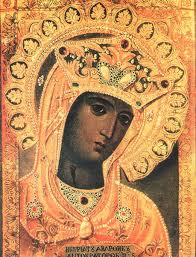








Africa's Catholic hierarchy refuses same-sex blessings, says such unions are contrary to God's will
In the greatest rebuke yet to Pope Francis, the Catholic bishops of Africa and Madagascar issued a unified statement Thursday refusing to follow his declaration allowing priests to offer blessings to same-sex couples and asserting that such unions are “contrary to the will of God.”
The statement, signed by Congolese Cardinal Fridolin Ambongo on behalf of the symposium of African national bishops conferences, marked the closest thing to a continent-wide dissent from the declaration Francis approved Dec. 18 allowing priests to offer such blessings.
That declaration from the Dicastery for the Doctrine of the Faith has sent shock waves through the Catholic Church, thrilling LGBTQ+ Catholics as a concrete sign of Francis’ message of welcome but alarming conservatives who fear core doctrines of the church are being ignored or violated.
The controversy has deepened a growing chasm between Francis’ progressive, reform-minded papacy and the conservative church in much of the world, especially Africa, where the number of Catholics is growing at a faster rate than anywhere else.
The Vatican declaration restated traditional church teaching that marriage is a lifelong union between a man and woman. But it allowed priests to offer spontaneous, non-liturgical blessings to same-sex couples seeking God’s grace in their lives, provided such blessings aren’t confused with the rites and rituals of a wedding.
In his statement, Ambongo said it wasn’t appropriate for African priests to offer such blessings because of the scandal and confusion it would create. He cited biblical teaching condemning homosexuality as an abomination and the African cultural context, where he asserted that LGBTQ+ unions “are seen as contradictory to cultural norms and intrinsically corrupt.”
“Within the church family of God in Africa, this declaration has caused a shockwave, it has sown misconceptions and unrest in the minds of many lay faithful, consecrated persons and even pastors, and has aroused strong reactions,” he wrote.
While stressing that African bishops remain in communion with Francis, he said they believed such blessings cannot be carried out because “in our context, this would cause confusion and would be in direct contradiction to the cultural ethos of African communities.”
A few weeks ago, Burundi's President Evariste Ndayishimiye said “people of the same sex who marry in this country should be taken to a stadium to be pelted with stones, once discovered.” In a radio broadcast Dec. 29, he asked Burundians living abroad who practice homosexuality “not to return home.”
Ambongo said the symposium statement was a “consolidated summary” of the positions adopted by individual national bishops conferences, and said it had received the “agreement” of Francis and the doctrine office’s new prefect, Cardinal Victor Manuel Fernández.
The botched rollout of the Dec. 18 declaration has heightened conservative criticism of Fernández, whom Francis appointed to the office over the summer. Fernández apparently published the text with little consultation inside the Vatican and no forewarning to bishops in the rest of the world.
Usually, when such sensitive Vatican documents are being prepared, there is an attempt to at least not blindside local church leaders. Often they are released with an accompanying letter or explanatory note published by Vatican Media, and are given to journalists ahead of time under an embargo to ensure the reporting is accurate and thought through.
No such extra documentation or preparation accompanied Fiducia Supplicans, as the text is known, and its rollout was marked by individual bishops and entire national conferences voicing confusion and opposition.
Others have welcomed it. France’s bishops conference, for example, said in a statement Wednesday that the declaration encourages pastors to “generously bless the people who come to them humbly asking for God’s help."
The document “reminds us that those who are not in a position to commit themselves to the sacrament of marriage are not excluded from the love of God or of his church,” the French bishops said.
After its initial publication, Fernández was forced to issue a second explanatory note a few weeks later, insisting there was nothing “heretical” in the document but acknowledging the opposing views. He acknowledged that it may not be applicable to some parts of the world and that further “pastoral reflection” might be necessary.
- Story by Nicole Winfield; The Independent:
Articles-Latest
- Koran burning conviction sparks fury as blasphemy law 'returns to UK'
- Robert Francis Prevost - Pope Leo XIV
- Pope Francis' death follows recent health challenges. Here's what we know about how he died.
- Easter April 2025 - international Celebrations
- The Rule of the twelve psalms -Worthy is the Lamb
- Religion in Africa Before Christianity and Islam
- 6 The Origin of Yahweh
- Dumo Di Milano
- What Did the Crow Tribe Believe In: Discover The Beliefs!
- 7 Reasons Historic Christianity Rejects the Book of Enoch
- 8 Breathtaking Mountain Monasteries Around the World
- Ethiopian Bible is oldest and most complete on earth
- Muhammad Muhammad was a prophet and founder of Islam.
- World Day of the Poor – SVP Christmas Campaign 2024
- Pope Francis to open 5 sacred portals on Christmas Eve — for a ritual that’s never been done before
- The 144,000 in Revelation
- Over 73 dead bodies 'used for meditation', 600 crocs in a pond, found in two Thai temples
- Occultism: Western Occult Tradition
- What is a Mudra
- Blood Sacrifices: Ancient Rituals of Life and Death
Articles-Most Read
- Home
- Let There Be Light
- Plants that feel and Speak
- The Singing Forest
- The Singing Forest-2
- Introduction
- Meditation
- Using Essential Oils for Spiritual Connection
- Heaven Scent
- Plants that Feel and Speak-2
- Purification
- Making the Spiritual Connection
- Anointing
- Essential Oils: The unseen Energies
- The Sanctity of Plants
- The Aroma Of Worship-Foreward
- The Aroma Of Worship - Introduction
- Methods Of Use
- Spiritual Blending
- Handling and Storage




